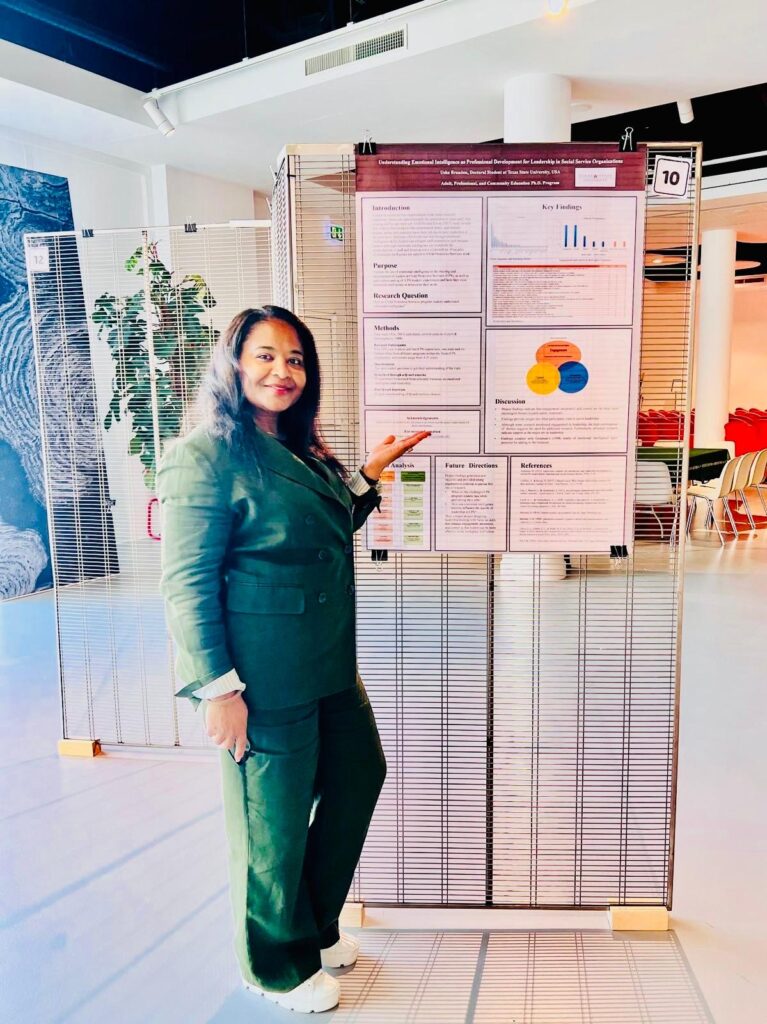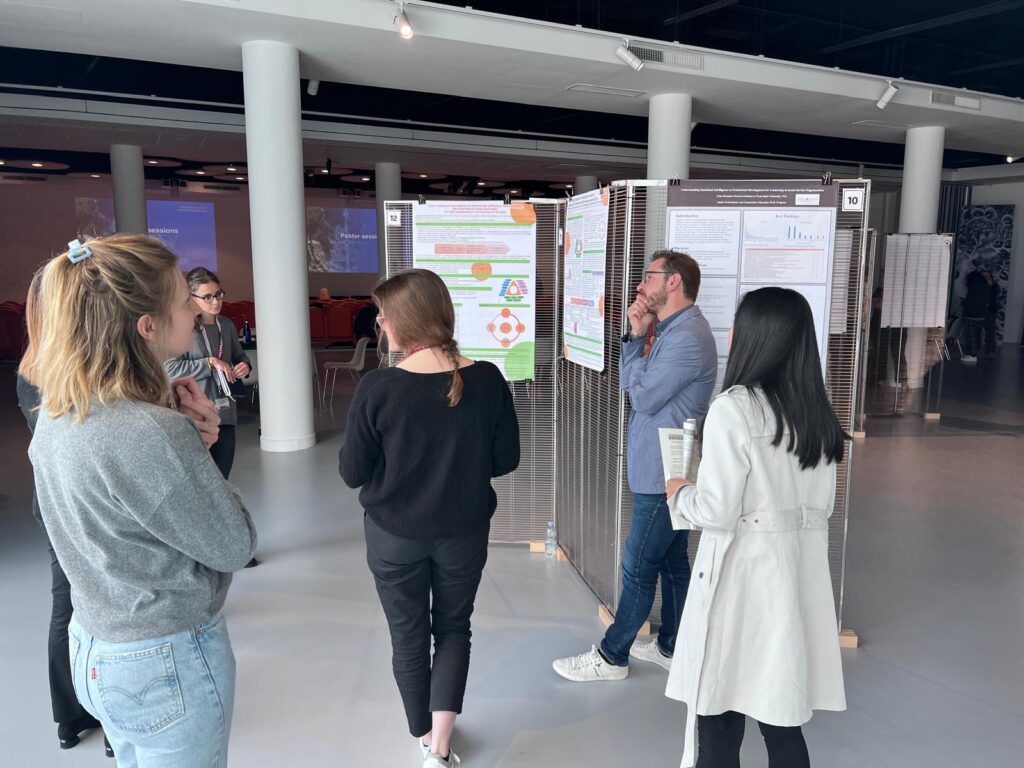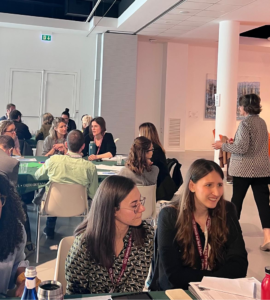By
Dr. Usha Brandon

I had the privilege of participating in a research expo at the University of Padova in Italy, an institution renowned for its academic excellence and historical significance. This event brought together researchers, academics, and professionals from diverse fields to exchange ideas, present findings, and foster collaborations. It was an enriching experience that not only deepened my understanding of my area of research but also offered valuable insights into leadership and professional development.
 © 2026 U. Brandon.
© 2026 U. Brandon.1. Preparation is the Key to Confidence
One of the most important leadership traits is confidence, not arrogance, but a calm assurance in your ability to deliver value. Preparing for the research expo required weeks of hard work: refining my presentation, anticipating questions, and ensuring that I could articulate my findings clearly and concisely.
This preparation paid off when I was able to engage eloquently with attendees, answer challenging questions, and adapt my message to different audiences. Leaders must invest time in preparation to ensure they are ready to face challenges with poise. Whether it’s preparing for a presentation, a negotiation, or a strategic decision, thorough preparation builds confidence and credibility.
2. Active Listening Builds Trust and Connection
At the expo, I interacted with people from various backgrounds, some were experts in my field, while others were simply curious about my research. What stood out to me was the importance of listening actively. By genuinely paying attention to their questions and comments, I was able to build rapport and establish trust.
 © 2026 U. Brandon.
© 2026 U. Brandon.3. Adaptability is a Hallmark of Leadership
During the expo, I encountered moments where I had to think on my feet, whether it was simplifying complex concepts for non-specialists or addressing unexpected critiques of my work. These situations required adaptability and a willingness to adjust my approach without compromising the integrity of my message.
Leadership often demands this kind of flexibility. Plans may change, challenges may arise, and leaders must be able to pivot while keeping their vision intact. Being adaptable doesn’t mean abandoning your goals; it means finding new ways to achieve them when circumstances shift.
4. Collaboration Enhances Influence
 © 2026 U. Brandon.
© 2026 U. Brandon.Strong leaders recognize the power of collaboration and actively seek input from others. They understand that diverse perspectives can lead to innovative solutions and greater impact. By fostering a culture of collaboration, leaders can amplify their influence and drive positive change.
5. Clarity of Vision Inspires Others
One of the most rewarding aspects of presenting my research was seeing attendees resonate with my theory and its potential applications. Articulating a clear vision, whether it’s for a research project or an organizational strategy, can inspire others to act and support your cause.
Leaders must be able to communicate their vision in a way that is both compelling and actionable. Clarity of purpose not only motivates teams but also ensures alignment toward common objectives. At the expo, I learned that even complex ideas can be made accessible when communicated with clarity and passion.
6. Resilience in the Face of Critique
Every researcher knows that presenting your work means opening yourself up to critique, and the expo was no exception. While some feedback was affirming, other comments challenged me to rethink certain aspects of my approach. Instead of perceiving these critiques as setbacks, I embraced them as opportunities for growth.
Leadership requires resilience, the ability to remain steadfast in the face of challenges while learning from constructive criticism. Resilient leaders view obstacles as stepping- stones rather than roadblocks and use feedback as a tool for continuous improvement.
7. Cultural Awareness Enriches Leadership

Being in Padova, surrounded by individuals from different countries and cultures, reminded me of the importance of cultural awareness in leadership. Understanding and respecting cultural differences not only enhances communication but also fosters inclusivity, a hallmark of effective leadership in our increasingly globalized world.

8. Inspiring Motivating and Empowering Others
Following my presentation, I received positive feedback from other research presenters who were impressed by the clarity and effectiveness of my delivery. Recognizing that some of them felt they had not performed as well, I took the opportunity to share insights into my preparation strategies and presentation techniques. By fostering an open dialogue, I aimed to empower others to refine their skills and approach future presentations with greater confidence.
Leadership is about inspiring, motivating and empowering others to reach their full potential, because inspiring provides the what, motivation provides the why, and empowerment provides the how, as well as creating an environment where individuals feel valued, supported, and encouraged to grow. By sharing knowledge, fostering support, and engaging in open dialogue, leaders can cultivate a culture of continuous improvement and growth.
All things considered, my experience at the research expo was far more than an academic endeavor, it was a journey of personal and professional growth that reinforced key principles of leadership. From preparation and adaptability to active listening and cultural awareness, each interaction offered an opportunity to refine my skills and broaden my perspective.
As you navigate your own leadership journey, I encourage you to seek out experiences that challenge you to step outside your comfort zone. Whether it’s presenting your ideas at a conference, leading a team, or mentoring others, every experience has the potential to teach you something valuable about yourself and your capacity to lead.
Leadership is not a destination; it is a continuous process of inspiring, motivating, and empowering others along the way. My time at the University of Padova reminded me of this truth, and for that, I am sincerely grateful.

 Felix Leadership Academy
Felix Leadership Academy